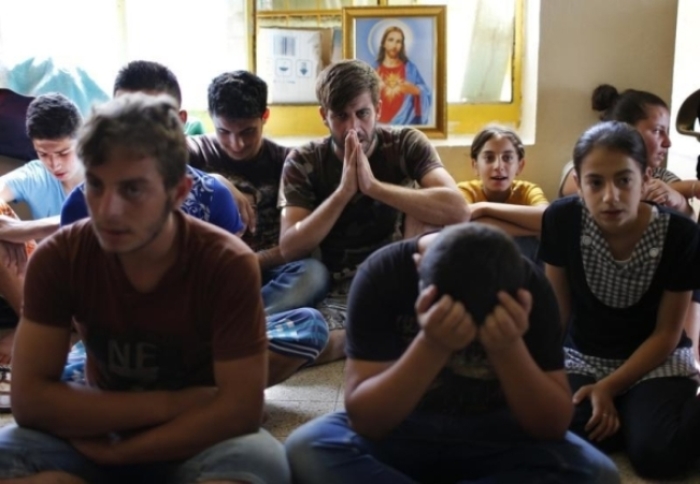Christians Are Not Strangers in Middle East, but 'Beacon of Truth in Agitated World': Greek Orthodox Patriarch

Calling on Western partners to help keep Christianity in its ancient homeland, Greek Orthodox Patriarch of Antioch John X Yazigi said Christians in the Middle East "are not strangers in that part of the world" and the church is "the beacon of truth in this agitated world."
"We as Christians in the Middle East: we are going to remain and stay there," the patriarch said at a press conference for the In Defense of Christians summit in Washington, D.C., according to Crux. "We are not strangers in that part of the world: we are people of light and of truth."
The Church, he added, "is the beacon of truth in this agitated world and we will continue to witness to that truth even if we are hanged on the Cross."
Also present at the summit, titled American Leadership and Securing the Future of Christians in the Middle East, which ended Thursday, were patriarchs of Catholic, Eastern Orthodox and Oriental Orthodox Churches, Middle Eastern Christians of all denominations and policy leaders from the United States.
Yazigi stressed that Christians in the Middle East need to have the "right to express on our destiny and our own plight."
"The Church is the beacon of truth in this agitated world and we will continue to witness to that truth even if we are hanged on the Cross," he said.
Middle Eastern Christians should also be partners in finding peace, he added. "Sometimes the media may portray us in a negative way, not necessarily in the way that we would have us portrayed … If we are talking about our destiny in our land, we have something to say."
A solution the patriarch proposed for Christians of the Middle East is the ability to "seek unity of our own country" and rebuild their lives in their own homelands. "We call all Christians and Muslims to work together for the well-being of their country."
Human rights activist Nina Shea warned last month that Iraqi Christian communities are in dire need of humanitarian and reconstruction assistance as they continue to receive a minimal amount of aid from the U.S., and as Iranian-backed militias and Shiite Muslims have moved into villages and towns where Christians once lived.
"That Consolidated Appropriations Act (of 2107) has essentially been ignored by the State Department," Shea, who served for 12 years on the U.S. International Commission on International Religious Freedom, told The Christian Post.
As the Christian population in Iraq has decreased from over 1.4 million to less than 250,000 in the last 15 years, Shea, the director of Hudson Institute's Center for Religious Freedom, wrote an op-led recently arguing that the Trump administration is "making the situation worse by continuing Obama policies that effectively exclude these non-Muslims from U.S. aid in Iraq."
Although the U.S. has provided over $1.4 billion in humanitarian aid to Iraq and over $250 million in reconstruction aid, very little of that funding has been used to benefit Christian and Yazidi communities due to a U.S. policy that requires aid money for Iraq to be funneled through the United Nations and U.N. displacement camps. Christians and other religious minorities are afraid to go to U.N. camps out of fear of persecution from Muslims.
Vice President Mike Pence, the keynote speaker at the summit in Washington, D.C., promised Christian leaders from the Middle East that their days of receiving little to no help from the U.S. government to rebuild their ancient communities "are over."
Pence announced that President Donald Trump has ordered the State Department to enable U.S. aid funding to go directly to faith-based organizations actively supporting Christians and other religious minorities displaced by the Islamic State, as reported by The Christian Post.
"Our fellow Christians and all who are persecuted in the Middle East should not have to rely on multinational institutions when America can help them directly," Pence assured. "And tonight, it is my privilege to announce that President Trump has ordered the State Department to stop funding ineffective relief efforts at the United Nations. And from this day forward, America will provide support directly to persecuted communities through [the United States Aid Agency.]"
The White House tweeted about the CP report.



























